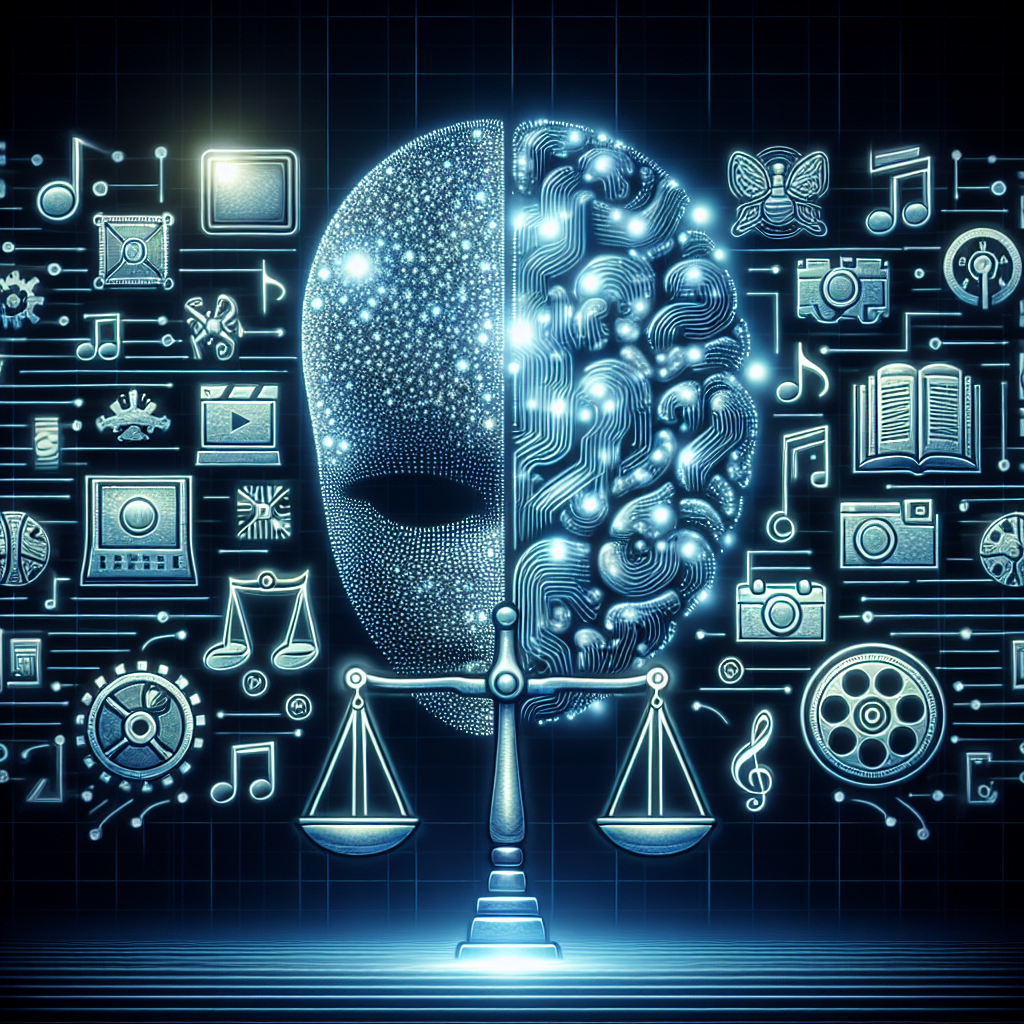Artificial Intelligence (AI) is revolutionizing the entertainment industry, from music and film to gaming and literature. While AI has the potential to transform the way content is created, distributed, and consumed, it also raises important questions about copyright and intellectual property rights. In this article, we will explore the impact of AI on copyright and intellectual property rights in entertainment, and provide insights into the legal and ethical challenges that AI presents.
AI and Content Creation
One of the most significant ways in which AI is impacting the entertainment industry is through content creation. AI algorithms can now generate music, write scripts, create artwork, and even produce entire films. This raises complex questions about ownership and copyright, as AI-created content blurs the lines between human and machine creativity.
In the music industry, AI has been used to compose songs, remix tracks, and even create entire albums. For example, AI-generated music has been used in commercials, video games, and films, raising questions about who owns the rights to this content. In some cases, AI-generated music has been released under a Creative Commons license, allowing for free distribution and remixing. However, this raises issues about attribution and recognition for the creators of the AI algorithms.
In the film industry, AI has been used to generate scripts, create visual effects, and even direct scenes. For example, the short film “Zone Out,” directed by AI, has garnered attention for its innovative use of technology. However, this raises questions about whether AI can be considered a “director” in the traditional sense, and what implications this has for copyright and intellectual property rights.
AI and Copyright Infringement
AI also presents challenges when it comes to copyright infringement. AI algorithms can be used to generate deepfakes, manipulate copyrighted content, and infringe on the rights of creators. This raises concerns about how to protect against AI-generated infringement, and how to enforce copyright laws in the digital age.
For example, AI algorithms can be used to create deepfake videos that manipulate copyrighted content, such as inserting a celebrity’s face into a scene from a movie. This raises questions about the legality of using AI to create derivative works, and how to protect against unauthorized use of copyrighted material.
In the gaming industry, AI has been used to create mods, hacks, and cheats that infringe on the rights of game developers. For example, AI algorithms can be used to generate cheat codes, exploit glitches, and create unauthorized content for games. This raises questions about how to protect against AI-generated infringement, and how to enforce copyright laws in the gaming community.
AI and Fair Use
Another challenge that AI presents in the entertainment industry is the concept of fair use. Fair use allows for limited use of copyrighted material without permission, for purposes such as criticism, commentary, parody, or education. However, AI algorithms can make it difficult to determine what constitutes fair use, and how to balance the rights of creators with the rights of users.
For example, AI algorithms can be used to generate memes, remix videos, and parody songs that incorporate copyrighted material. This raises questions about whether AI-generated content falls under fair use, and how to protect against unauthorized use of copyrighted material.
In the literary world, AI has been used to generate poetry, novels, and articles that mimic the style of famous authors. For example, AI algorithms can be used to create poems in the style of Shakespeare, novels in the style of Hemingway, and articles in the style of Orwell. This raises questions about whether AI-generated content constitutes fair use, and how to protect against plagiarism and copyright infringement.
FAQs
Q: Can AI own copyrights?
A: In the United States, copyright law states that only human beings can be considered authors of copyrighted works. This means that AI algorithms cannot own copyrights, as they are not considered legal persons. However, the creators of AI algorithms may be able to claim copyright protection for the works generated by their algorithms.
Q: How can creators protect their copyrights from AI-generated infringement?
A: Creators can protect their copyrights by registering their works with the U.S. Copyright Office, using watermarks or digital rights management (DRM) technology to prevent unauthorized use, and monitoring for infringement using AI-powered tools. Creators can also consider licensing their works under a Creative Commons license, which allows for free distribution and remixing under certain conditions.
Q: What are the ethical implications of AI-generated content?
A: The ethical implications of AI-generated content include questions about attribution, recognition, and ownership of creative works. Creators may feel that their rights are being infringed upon by AI algorithms, while users may feel that they have the right to remix and share content generated by AI. It is important for creators, users, and policymakers to consider the ethical implications of AI in the entertainment industry.
In conclusion, the impact of AI on copyright and intellectual property rights in entertainment is complex and multifaceted. AI has the potential to transform the way content is created, distributed, and consumed, but it also raises important questions about ownership, infringement, fair use, and ethics. As AI continues to evolve and become more integrated into the entertainment industry, it will be essential for creators, users, and policymakers to address these challenges and find solutions that balance the rights of all stakeholders.

